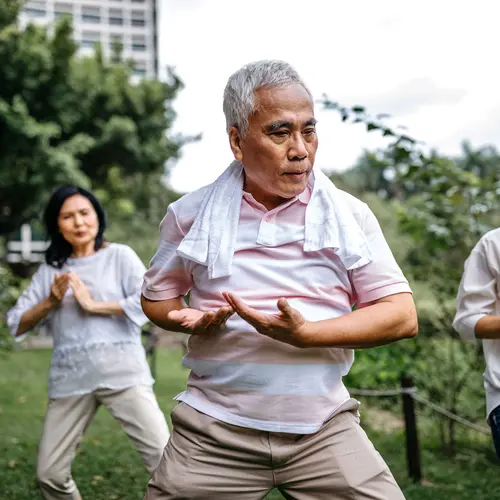April 17, 2000 (Greenbrae, Calif.) -- Tired of reading about the Silicon Valley Gold Rush and the techies who've struck it rich with the latest IPO? Well, hold the envy; these self-made millionaires often feel alienated and anxious, and there's increasing evidence that sudden wealth is bad for you.
"People don't realize how hard it is to adjust," says Angela Jones, who founded a successful start-up company with her husband. The Joneses (not their real names) found themselves spending so much time at work that they had a special room built there for their infant.
When Microsoft bought their company, making them instantly rich, Angela thought she'd be able to take it easy. But things only got worse. "We were still caught up in the workaholic lifestyle. We lost a lot of friends and ended up divorced."
Americans are enjoying the longest economic boom in history -- a record 107 months -- but this newfound prosperity isn't bringing us security and happiness. Instead, it's making people far more anxious. Recent studies indicate that the more you have, the more vulnerable you feel -- and the more worries you rack up.
University of Chicago researchers divided 800 teenagers into four groups according to the income levels of the communities in which they lived for one study published in the October 1998 issue of Monitor on Psychology. They found that the wealthier the community, the less happy the teenager.
And while personal income has more than doubled between 1960 and 1990, the percentage of adult Americans who describe themselves as happy has declined, according to Edward Diener, PhD, professor of psychology at the University of Illinois at Urbana-Champaign.
Sudden Wealth Syndrome
"The Silicon Valley creates 64 new millionaires each day," says Lisa Becker, a researcher at MyCFO.com, a company that caters to the needs of the newly rich. "And between 1998 and 2008, the number of millionaire households in this country will quadruple."
"These are boom times, but there's also a tremendous fear that the economy will all coming crashing down," adds Barry Glassner, PhD, a sociologist at the University of Southern California, Los Angeles, and author of The Culture of Fear. Glassner believes that the more prosperous we become, the more we fall prey to irrational fears. "The newly wealthy buy home security systems and car alarms and hide themselves away in gated communities, even though the crime rate is the lowest it's been in 30 years."
That's what happened to Jones after selling out to Microsoft. "Once your net worth is public, you feel like you're a target for thieves and kidnappers -- even though you're living in a nice suburban town," she says.
Therapists Stephen Goldbart, PhD, and Joan Di Furia, MFT, of Kentfield, Calif., treat families like the Joneses, and have coined the term "sudden wealth syndrome" to describe the worries that beset the newly rich. Guilt is at the top of the list, Goldbart says. The newly rich feel alienated from family and friends, unable to trust investment counselors, and fearful their children will grow up spoiled. Their identities are thrown into crisis because they no longer need to work.
"It takes awhile to help them get their balance emotionally," says Di Furia. "After all, they haven't been trained to deal with wealth, like the Kennedys or Rockefellers."
At their Money, Meaning, and Choices Institute, Di Furia and Goldbart offer the young and suddenly wealthy some basic advice on how to select a good financial advisor, set a sustainable budget, and make a list of their priorities. Like lottery winners, Goldbart says, many of these newly rich make risky investments and end up losing big.
Next, Di Furia and Goldbart encourage suddenly rich families to adopt a favorite cause and use it as a way to teach social responsibility to the next generation.
For example, one entrepreneur made sleeping bags for children who'd lost their homes in the war in Bosnia. His kids suggested that they also send teddy bears so the children would have something to hold. Says Di Furia. "Charity is the best antidote to anxiety and guilt -- because it builds connection and community."
Valerie Andrews has written for Intuition, HealthScout, and many other publications. She lives in Greenbrae, Calif.
